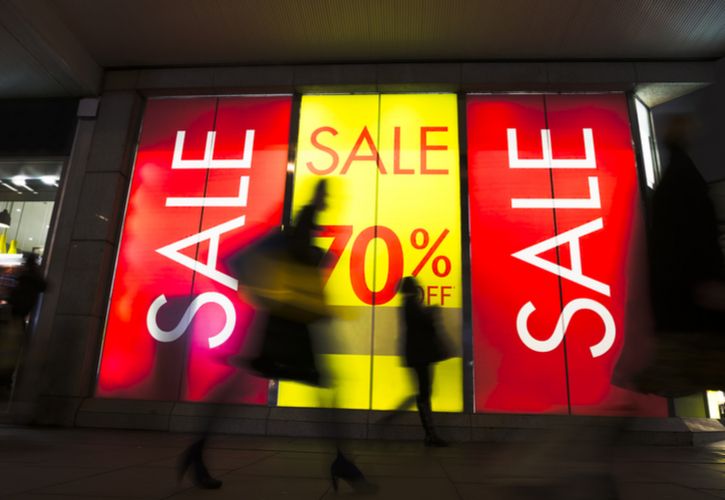UK DIY News
KPMG/Ipsos: Retail Health Surpasses Historic Low

The KPMG/Ipsos Retail Think Tank (RTT) has determined that – as predicted* – retail health in the third quarter of 2019 has surpassed the historic low previously recorded in the final quarter of 2012, when the UK’s economy faced the so-called ‘double-dip recession’.
The latest retail health index (RHI) figures sees the third quarter of 2019 score a record low of 75, with health in the final quarter predicted to decline even further to 74.
The think tank members were in unanimous agreement that the industry has faced a prolonged decline of health, stressing that the high rate of store closures, business failures, job losses and overall turmoil within the sector has been unprecedented. Indeed, the health index hasn’t moved in a positive direction since the final quarter of 2015, with the RTT members attributing this to mainly legacy players grappling with the rapid rate of change.
In the RTT’s assessment of demand, retailer margins and retail costs, members concluded that the industry had struggled with all three of these aspects in recent months, resulting in the fourteenth consecutive quarter of either downward or static movement of the RHI.
Looking ahead to the all-important final ‘golden quarter’ (Q4 2019) – when many retailers traditionally record their strongest performance – the RTT members were in agreement that much hinged on the outcome of Brexit negotiations, which will heavily define the political and economic backdrop, and in that context how well consumer demand in particular, performed. In any case, the RTT believe that demand in the final months of 2019 would flat-line at best. Moreover, margin and cost would continue on a negative trajectory, pulling down the RTT’s prediction for health in the final quarter to a new low of 74.
Reflecting upon performance in the third quarter of 2019, Dr Tim Denison, co-chair of the RTT and head of retail intelligence at Ipsos Retail Performance, said:
“The third quarter of 2019 was a desperate period for many retailers – especially if looking at the BRC-KPMG Retail Sales Monitor**, which revealed drastic lows throughout. Such consistent retraction in growth and lackluster sales across consecutive months is quite unusual and paints a bleak picture of ill-health plaguing a large proportion of the industry. Even online sales were markedly down and many retailers – once celebrated for bucking the downward trend – found themselves in hot water.
“The third quarter was very much a story of food versus non-food divergence. Food got off to a rocky start in August, but promotional activity and the consumer’s need to find affordable indulgences elsewhere seemingly worked in grocery’s favour. For non-food retail categories though, there was little deviation away from growing evidence to suggest that consumers are less and less interested in buying new products. Fashion really struggled to win over consumers, with new collections often discounted from launch to get stock moving. This approach is clearly detrimental to retailer margins, and against a backdrop over ever-increasing costs, many players will now be desperate to make up for lost ground in the final months of the year.”
Looking ahead to the final quarter of 2019, Paul Martin, co-chair of the RTT and UK head of retail at KPMG, said:
“It’s hard for consumers or retailers to look ahead at the coming months with any certainty – with Brexit as well as political and economic uncertainly continuing to delay or disrupt purchasing and business decisions. With the final ‘golden’ quarter an obvious focal point for many retailers, the period marks a make-or-break point – especially for those that have struggled to achieve meaningful sales growth so far this year.
“To a degree, British consumers have appeared defiant in the face of economic and political turmoil, choosing to keep calm and carry on. The run-up to Christmas is arguably a time when consumers will take this approach most prominently, but retailers still have their work cut out to maintain demand, so it will likely flat-line at best. There will be those that can buck this trend of course, but that success will pivot on an ability to turn these adverse trading conditions into an advantage. That’s something legacy players continue to struggle with currently.”
Source : Insight DIY Team and KPMG/Ipsos
Thank you for the excellent presentation that you gave at Woodbury Park on Thursday morning. It was very interesting and thought-provoking for our Retail members. The feedback has been excellent.











































